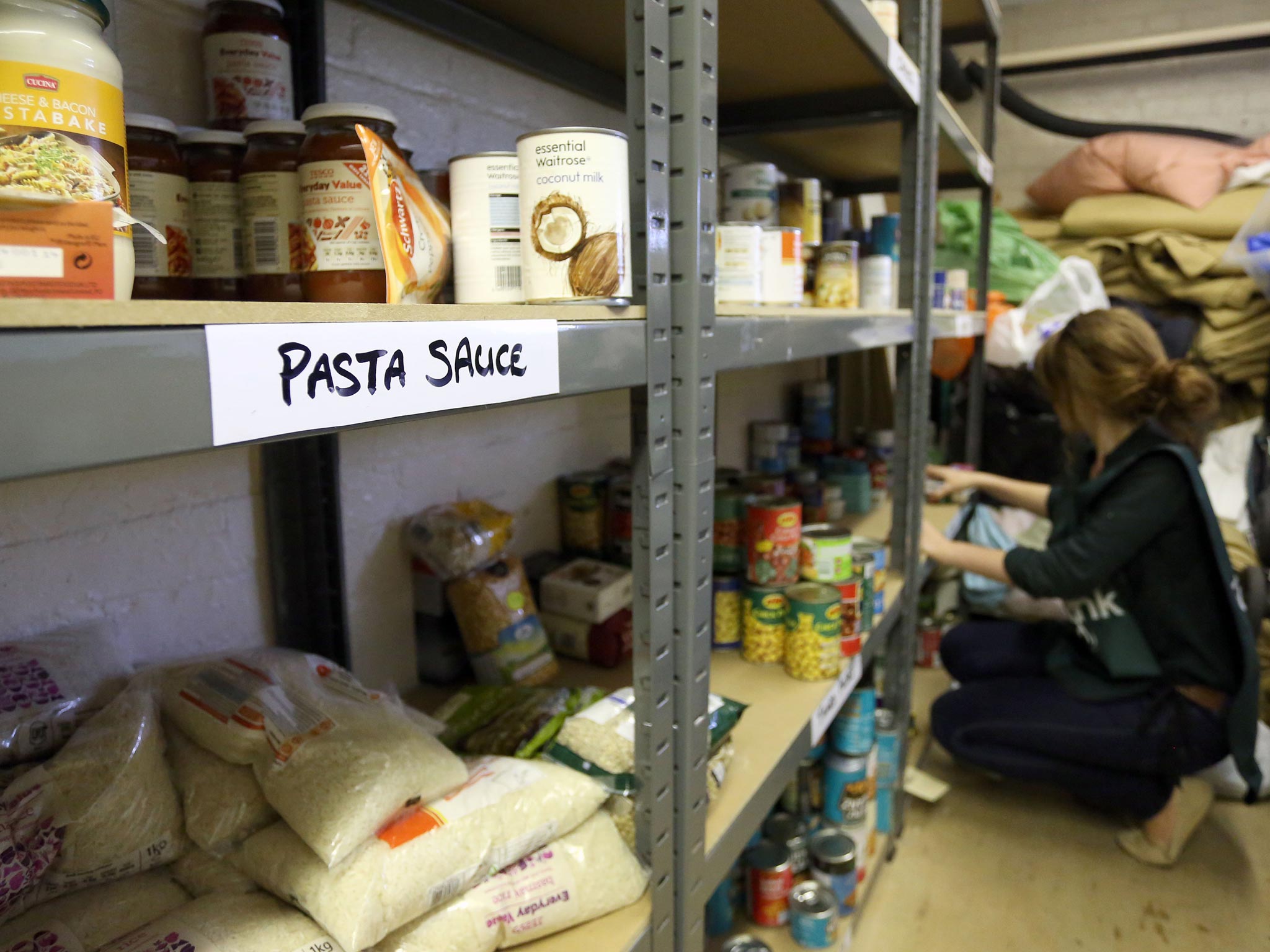Working poor trapped in unbreakable cycle of poverty turn to food banks in their lunch breaks
Sentamu challenges Cameron to back up his 'warm words' with action to boost the incomes of millions of low-paid workers

Millions of low-paid workers are trapped in an unbreakable cycle of poverty, and are even turning up at food banks in their lunch breaks asking for help to feed their families, the Archbishop of York warns.
Dr John Sentamu, writing in The Independent, says low pay is a “scourge on our society” and challenges David Cameron to back up his “warm words” with action to boost the incomes of the working poor.
An independent commission chaired by the Archbishop says the economic recovery will make no difference to the lives of the five million lowest-paid workers unless they paid the so-called “living wage”.
They are being suffering a “double squeeze” on their incomes as their wages remain stagnant and their and living costs rise steadily.
In a report published today, the commission calls for a drive to persuade employers to pay the living wage, which would guarantee staff a basic but acceptable income.
The wage is currently set at £7.65 an hour and £8.80 in London, compared with a national minimum wage rate for over-21s of £6.31 an hour.
The commission says the number of workers paid below the living wage level has leapt by 400,000 in the last year alone to more than 5.2m, equivalent to 21 per cent of the workforce.
For the first time, more than half the people living in poverty in the UK are in a family where someone has a job.
The numbers have jumped despite wide political backing for the principle of a living wage.
It is supported by Labour, which has said it would give a 12-month tax break to companies which pay it to staff, as well as Boris Johnson, the Mayor of London. The Prime Minister has urged companies to pay the rate as long as they can afford it.
However, the commission says growing numbers of working families are below the breadline because their bills are rising more quickly than their incomes.
Food costs 44 per cent more than in 2005 and the price of energy has doubled over the period.
It warns that children whose parents are low-paid are likely to be out-performed by youngsters from better-off backgrounds at every stage of their school careers.
The commission also calculates that low-paid jobs cost the taxpayer up to £6bn a year in in-work benefits, tax credits and lost tax revenue, and suck demand out of the economy.
Working families are increasingly turning to foodbanks or borrowing money to make ends meet, according to the commission.
Dr Sentamu writes: “It used to be the case that work was the gateway to independence and served as the means to provide for the family. However, the millions of people in low paid employment are having to rely on benefits and debt to get by.
“The Trussell Trust, the organisation that runs food banks across the UK, are now reporting that people at work are turning up to collect food packages in their lunch breaks. It is no longer guaranteed that work alone is enough to provide for a family.”
The Archbishop points to support for a living wage from Mr Cameron and George Osborne, the Chancellor. But he adds: “The majority of Government departments are yet to implement the Living Wage in their own workplaces. Without a Living Wage, these warm words are not making a difference to the lives of the five million low paid workers.”
Frances O’Grady, the TUC general secretary, said: “The UK economy may be in recovery mode, but most people’s pay packets have yet to experience a similar revival. For those families firmly stuck in low-pay Britain, life is tough, and they continue to struggle to make their wages stretch far enough to meet the cost of food, fuel and other essentials.
“Low pay is blighting the prospects of millions of workers, and we need urgent action to tackle the UK’s serious, and worsening, low-pay problem.”
Join our commenting forum
Join thought-provoking conversations, follow other Independent readers and see their replies
Comments